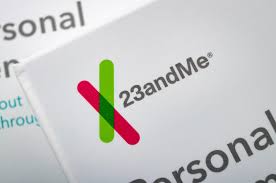The popular genetic testing company 23andMe has officially filed for bankruptcy, and this has serious implications for anyone who has ever used their services. When a company goes bankrupt, its assets—including customer data—can be sold to pay off debts. In this case, that means your genetic information could end up in the hands of an unknown buyer.
If you’ve used 23andMe, now is the time to act. Your genetic data is some of the most sensitive personal information you own, and once it changes hands, you lose control over how it is used. The good news is that you can still delete your data, withdraw consent, and ensure your DNA sample is not stored.
Here’s everything you need to do right now to protect your privacy.
Step 1: Log Into Your 23andMe Account
Go to the 23andMe website and sign in to access your account.
Step 2: Download Your Data (If You Want a Copy)
Before deleting your data, you may want to download it for personal records.
- Navigate to Settings in your profile.
- Scroll to the 23andMe Data section.
- Click View and follow the instructions to download your genetic data.
Step 3: Permanently Delete Your Data
- Go to Settings and scroll down to Delete Data.
- Click Permanently Delete Data and follow the prompts.
- Wait for the confirmation email from 23andMe.
- Click the confirmation link in the email to finalize the deletion.
- Save a copy of the email or take a screenshot for proof.
Step 4: Withdraw Research and Data Sharing Permissions
Many users previously consented to 23andMe using their genetic data for research. To revoke these permissions:
- Go to Account Settings → Research & Product Consents.
- Withdraw any consents you previously granted.
Step 5: Request the Destruction of Your Saliva Sample
If you submitted a DNA sample, 23andMe may still have it stored.
- Go to Account Settings → Preferences.
- Change the option to ensure your physical DNA sample is not stored.
Why This Matters
If 23andMe is sold, any data that has not been deleted or removed will be transferred to the new owner. This could be a private equity firm, a pharmaceutical company, or another entity with unknown intentions. The safest course of action is to remove your data before that happens.
What If You Encounter Issues?
If 23andMe makes it difficult to delete your data, don’t give up. Your state’s Attorney General’s office is likely to prioritize cases like this, given the highly sensitive nature of genetic data. You can file a complaint with your state’s Attorney General if you face any roadblocks.
Final Thoughts: Act Now!
Time is of the essence. If you have ever used 23andMe, take these steps as soon as possible to protect your data from being sold. Once your genetic information is in someone else’s hands, you have no control over how it will be used.
Stay proactive, stay informed, and most importantly—protect your privacy.
